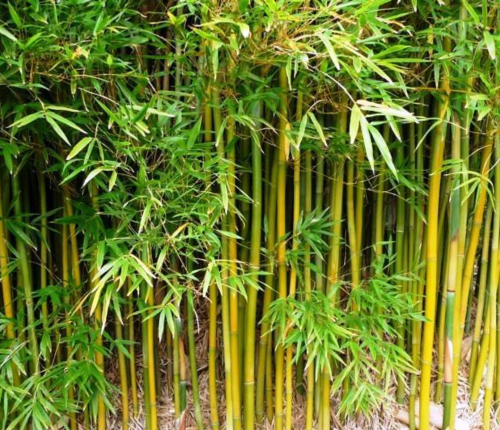Invest in us to:
Why Invest in us?
At Prolific Innovations Limited, our commitment extends beyond business; it’s a pledge to combat climate change through impactful initiatives that simultaneously generate substantial employment opportunities for the youth. In line with our mission, every project we undertake is designed with the ambitious goal of removing a minimum of 400k tonnes of carbon dioxide pollution from the atmosphere.
Our approach is rooted in the understanding that addressing climate change requires innovative and scalable solutions. By integrating job creation with carbon reduction, we not only contribute to environmental sustainability but also actively participate in fostering economic empowerment for the youth.
These projects are carefully crafted to be environmentally responsible and socially impactful. Through the implementation of cutting-edge technologies, sustainable practices, and community engagement, we aim to achieve a dual outcome a significant reduction in carbon emissions and the creation of meaningful employment opportunities for the youth.
OUR PROJECTS

We need to plant 400k hectares of cassava in Uganda to improve on food security and combat climate changes and also to provide employment opportunities for youth, In the lush landscapes of many African countries, cassava stands as a resilient and versatile crop, deeply ingrained in the fabric of local cultures. With its origins tracing back centuries, cassava has not only been a source of sustenance but a vital pillar of food security for millions across the continent.
Cassava’s remarkable adaptability allows it to thrive in diverse climatic conditions, from the humid tropics to arid regions, making it a reliable source of nutrition for communities facing various environmental challenges. Its hardiness in the face of unpredictable weather patterns and changing climates has earned it a reputation as a dependable crop, providing a consistent harvest even in less favorable conditions.
Beyond its agricultural significance, cassava plays a pivotal role in the economic landscape of these nations. It serves as a source of income for countless farmers, many of whom depend on cassava cultivation as their primary means of livelihood. The crop’s value extends beyond its immediate consumption, with various industries utilizing cassava for the production of starch, flour, and biofuels.
Yet, the story of cassava is not just one of the past; it continues to evolve in the present and future. As the global community grapples with the challenges of food security and climate change, cassava stands resilient. Agricultural practices and research are exploring ways to enhance the crop’s productivity, improve disease resistance, and unlock its full potential as a sustainable food source.
In the face of an ever-changing world, cassava remains a symbol of continuity and adaptability, a crop that not only nourishes the body but also sustains the livelihoods and cultural heritage of countless individuals. Let’s plant more together.

In the vast expanses of Uganda, where thousands of degraded lands lay open and vulnerable, a transformative initiative has found its roots. Prolific Innovations Limited is spearheading the ambitious goal of planting 400k trees, marking not just an ecological effort but a profound commitment to combat the challenges posed by climate change.
The impact of climate change, evident through extreme weather events and environmental degradation, underscores the increasing importance of reforestation. In Uganda, where the scars of degraded lands mar the earth, the initiative to plant 400k trees serves as a beacon of hope for a more sustainable future.
Trees, often referred to as nature’s carbon sinks, play a pivotal role in mitigating climate change. Through photosynthesis, they absorb carbon dioxide, a major greenhouse gas, contributing to offsetting the carbon emissions responsible for global warming. Beyond carbon sequestration, trees contribute to biodiversity, soil health, and water conservation, creating a ripple effect that revitalizes ecosystems.
The commitment to plant 400k trees in Uganda reflects a holistic approach to environmental stewardship. It not only addresses the urgent need for carbon sequestration but also acknowledges the broader ecological benefits that trees bring to the landscape. Moreover, this initiative recognizes the interconnectedness of environmental health and human well-being.
As the first saplings take root in the once-degraded lands, the project becomes a symbol of resilience and collective action. These trees are envisioned not only as a physical barrier against the impacts of climate change but also as inspirations fostering responsibility and environmental consciousness within local communities.
The success of this monumental reforestation effort hinges not solely on the number of trees planted but on the sustained commitment to nurturing and protecting these young ecosystems. Education, community engagement, and sustainable land management practices are integral components ensuring the long-term success of this initiative
Let’s act now!

Prolific Innovations Limited is embarking on a transformative mission to restore 400k hectares of degraded lands in Uganda. Our strategy involves the strategic planting of polyculture native bamboo, a sustainable and versatile plant species known for its regenerative properties.
Through this initiative, we aim to achieve multiple interconnected objectives. First and foremost, the introduction of polyculture native bamboo serves as a powerful tool for land restoration. The bamboo’s robust root system helps prevent soil erosion, enhances water retention, and contributes to overall soil health. This, in turn, facilitates the gradual rejuvenation of degraded landscapes, transforming them into thriving and resilient ecosystems.
Moreover, the planting of native bamboo aligns with our commitment to combating climate change. Bamboo is renowned for its exceptional capacity to sequester carbon dioxide from the atmosphere, making it a valuable asset in our efforts to reduce carbon pollution. By strategically restoring these lands with polyculture native bamboo, we aim to significantly contribute to the global initiative for carbon offset and environmental sustainability.